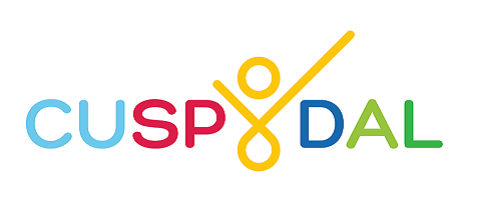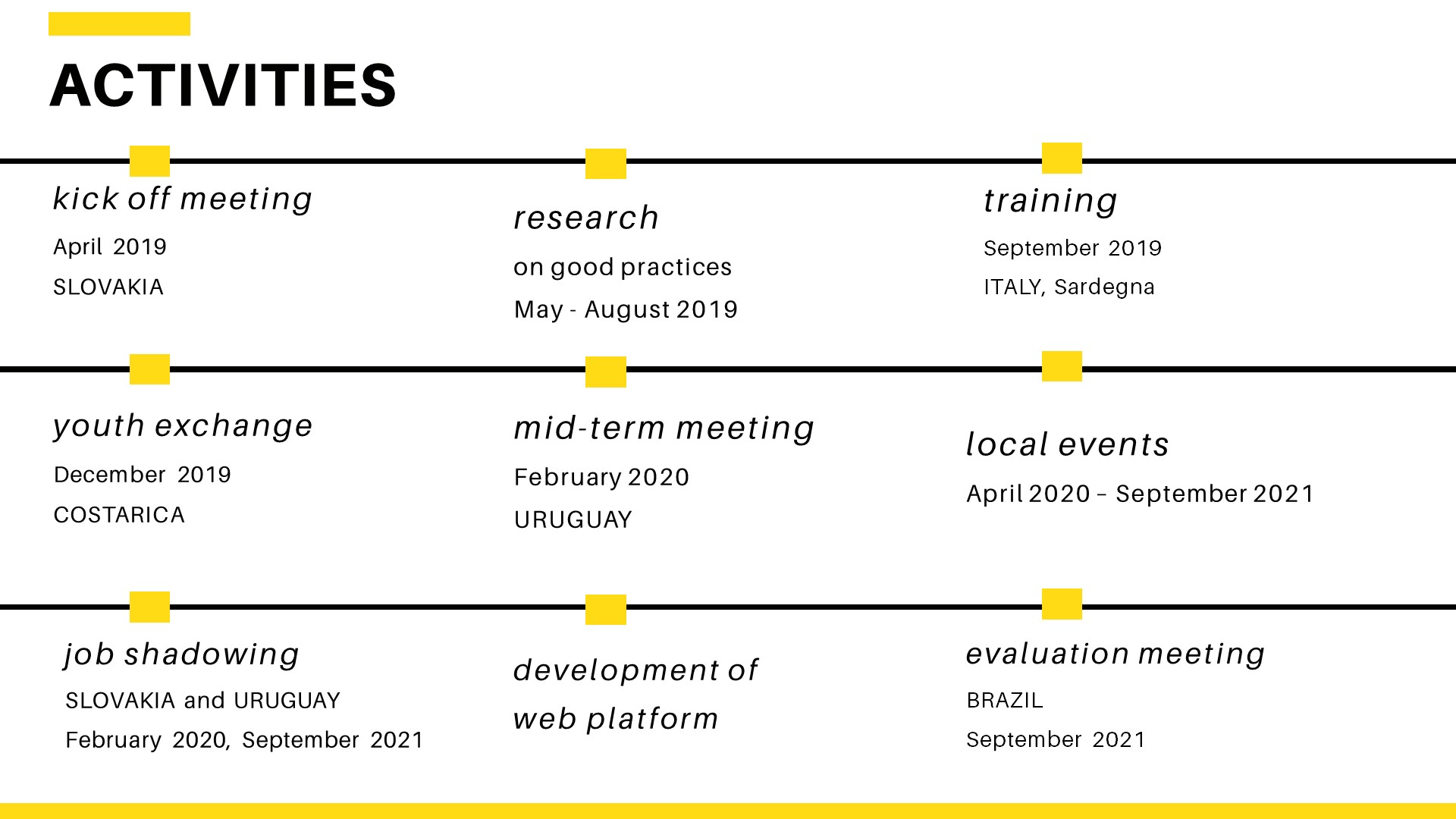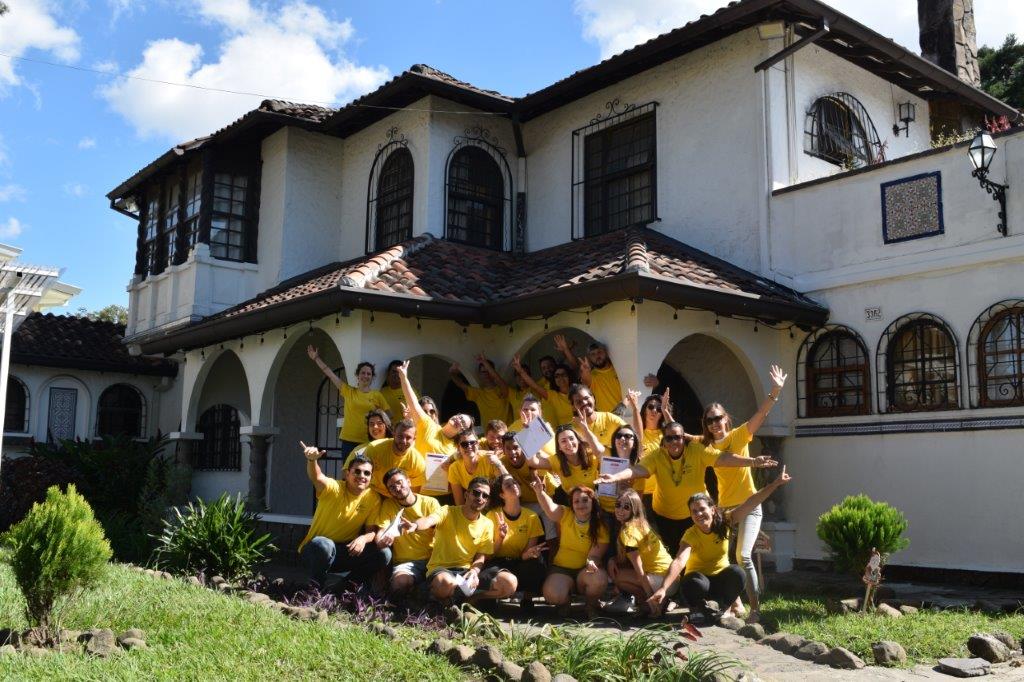Date/time
Date(s) - 15/12/2018 - 14/12/2021
All day
Locality
Slovakia and around the world
Project type
Selected participants
CUSPYDAL – CUstomized SuPport to Youth Development of Active Leadership was s a project based on cooperation between Europe (Slovakia  , Italy
, Italy  , North Macedonia
, North Macedonia  ) and Latin America (Brazil
) and Latin America (Brazil  , Costa Rica
, Costa Rica  , Uruguay
, Uruguay  ).
).
Project aim:
 aims to enhance social inclusion of disadvantaged young people (affected by unemployment, from rural or less developed areas); to contribute to their personal and professional development, enhance their soft and life skills, employability and entrepreneurship and to support their active participation in the local communities.
aims to enhance social inclusion of disadvantaged young people (affected by unemployment, from rural or less developed areas); to contribute to their personal and professional development, enhance their soft and life skills, employability and entrepreneurship and to support their active participation in the local communities.
There were various educational and research activities organized in 2 years:
TIMELINE/ACTIVITIES:

- kick-off meeting of the partners in Slovakia,
- research on NGO best practices in Europe and Central America related to the development of leadership for active engagement and social inclusion of disadvantaged youths,
- training in Sardenia, Italy about fostering youth workers’ competences in the upskilling and development of the leadership potential of disadvantaged youngsters,
- youth exchange in Costa Rica involving disadvantaged youths to transmit soft and transversal skills for personal fulfilment (flexibility, cooperation, sense of initiative and entrepreneurship, goal-oriented thinking) and foster leadership potential for an increased involvement in their own communities. Participants produced an activity plan for a socially-oriented initiative focused on tackling issue rooted in their own communities.
- job-shadowings (Slovakia – Uruguay and back),
- local events focused on introducing the project results as well as to the activity plans developed by YE participants,
- mid-term meeting of the partners in Uruguay,
- development of web platform
- final evaluation meeting of the partners in Brazil
Project was co-financed by the European Union, Erasmus+ Programme







































































